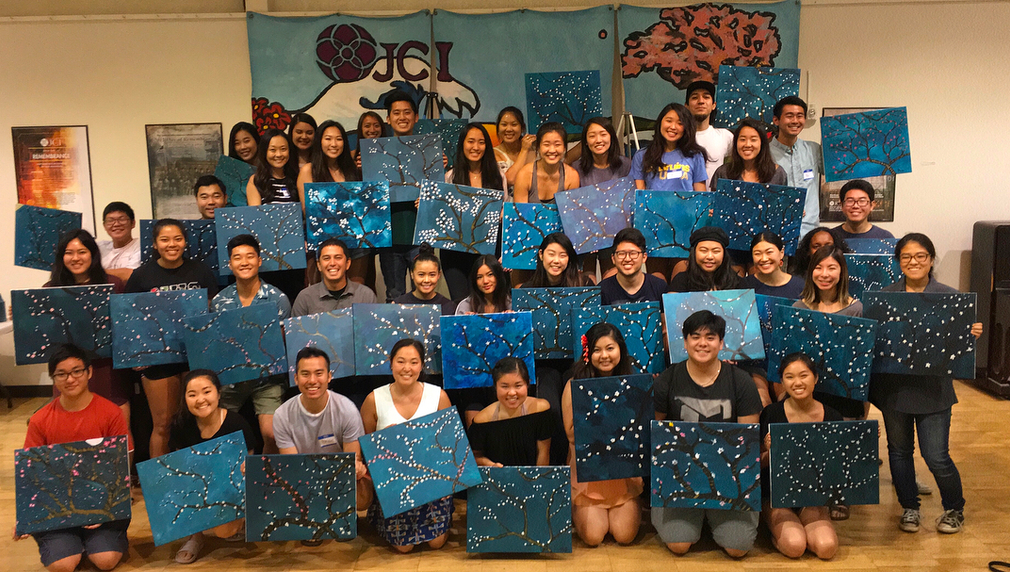Changing the Tide on Mental Health
There is dire need to address the current mental health crises impacting AAPI youth in Los Angeles. Mental health services can be inaccessible for numerous reasons: stigma surrounding mental illness, lack of access to culturally-sensitive providers, language barriers, economic instability, and unavailability and inaccessibility of services. The goal of Changing Tides is to reduce these obstacles and provide an accessible, transparent, and inclusive opportunity to obtain mental health services.

What is the primary issue area that your application will impact?
Immigrant and Refugee Support
In which areas of Los Angeles will you be directly working?
Central LA
South Bay
In what stage of innovation is this project, program, or initiative?
Expand existing project, program, or initiative
What is your understanding of the issue that you are seeking to address?
The need for mental health targeting the Asian American and Pacific Islander (AAPI) community is both undeniable and timely. 1 in 5 people experience mental illness. However, mental health remains a highly stigmatized and ‘taboo’ subject in AAPI communities. The need for youth mental health is supported by the disturbing upward trend in suicide rates. Data from the US Department of Health and Human Services, Office of Minority Health indicates suicide is the leading cause of death among Asian Americans 20-24 years old. The pandemic and Asian hate crimes have only added to the reasons for why support for AAPI mental health care is vitally urgent. People who identify as AAPI are searching for mental health resources more in 2020 than ever before. The added vulnerability is that this group also has the most uninsured, creating a financial barrier to accessing care. Traditional models of mental health clinics have not been successful in reaching vulnerable youth communities.
Describe the project, program, or initiative this grant will support to address the issue.
LTSC’s “Changing Tides” (CT) seeks to inspire greater mental health discussion within the AAPI community, challenges the associated stigma and dares to change the way mental health is viewed with three programs: “Changing Tides Stream” offsets the costs of approximately 6-10 non-acute therapy sessions for those seeking therapy for the first time and/or for those unable to afford therapy. The program is open to youth/young adults 16-25 years old in Los Angeles and the South Bay areas of LA County. After CT receives an application, the stipend program coordinator works with the client to determine the best way to utilize the stipend. On the back end, CT works with its network of 45 mental health professionals to offer therapist-client matches and to assist with enrollment. The program is supported by continued post-stipend services to ensure that the program addresses the stigma, monetary needs, and emotional needs of program participants. CT continues the conversation surrounding mental health and stigma within the AAPI community with mental health discussions, workshops led by mental health professionals, community advocates and those willing to share their own mental health journeys in peer support groups and podcasts. Third, an “Art Talk” series invites participants to engage in an artistic practice while also considering the ways in which art plays a role in mental health. Each Art Talk consists of a workshop followed by a small group discussion led by CT facilitator.
Describe how Los Angeles County will be different if your work is successful.
If the project is successful the Los Angeles County’s AAPI community will see reduced stigma and increased awareness of mental health issues. More youth and young adults will increase their familiarity with navigating mental health services. Those unable to otherwise pay for therapy will have access to needed services. The AAPI community will be engaged in a non-intimidating environment that fosters open conversations around mental health. Cultural values around communication and suppressing emotions, which contribute to the success of the community, also act as barriers to acknowledging the need for help and accessing services. The program will help youth and families break down these barriers. For the long term, with reduced stigma, increased awareness, access to therapy and community engagement, ultimately the AAPI community will improve its collective mental health and fewer youth and young adults will be lost to suicide.
What evidence do you have that this project, program, or initiative is or will be successful, and how will you define and measure success?
CT Stream uses a survey through SurveyMonkey to get feedback from participants after they complete their therapy sessions. The survey asks questions about their demographics, past therapy experiences, stipend request process, the therapy experience itself, and more. The team that created this survey includes both CT staff and volunteers, including retired school psychologists, retired therapists, retired attorneys, and mental health advocates. The program has conducted one round of surveys to and it is making a positive impact on the participants’ mental health and accessibility to mental health. To measure the effectiveness of the non-therapy program services, participant surveys are utilized. Questions include: “The topic of today’s workshop/event/ program was helpful to me” Rate 1 (very unlikely) - 5 (very likely.) “I would want to come back to a future CT event.” Surveys are collected after each event and staff review and make changes to programming based on the survey results.
Approximately how many people will be impacted by this project, program, or initiative?
Direct Impact: 800
Indirect Impact: 2,000